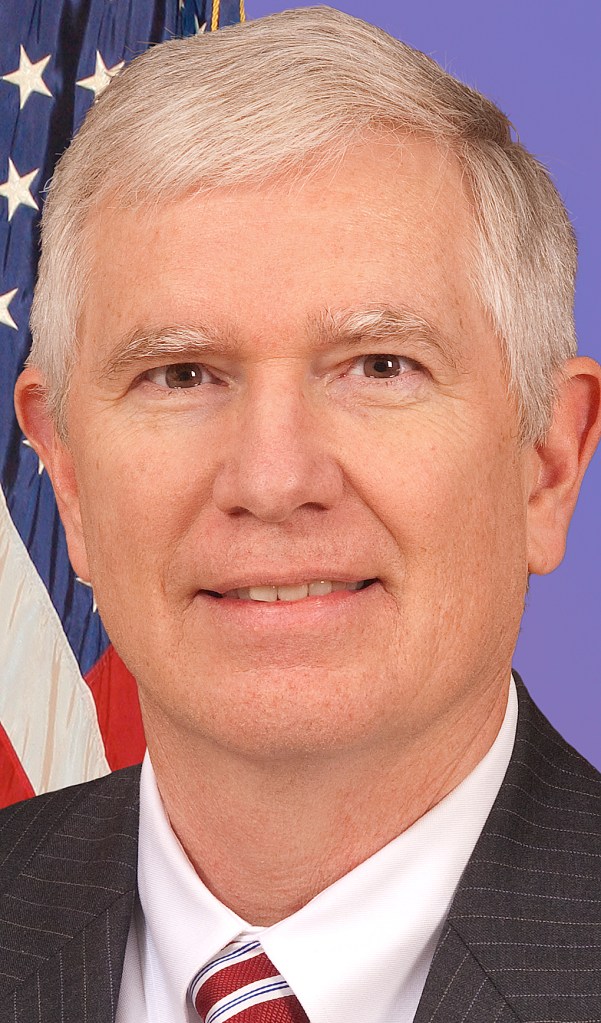GOV’T SHUTDOWN: Brooks reintroduces EL CHAPO Act
Published 6:15 am Thursday, January 24, 2019

- U.S. Rep. Mo Brooks, R-5th.
U.S. Rep. Mo Brooks, R-5th, reintroduced a bill Wednesday that could result in funding for a border wall using funds tied to the prosecution of Mexican drug lord Joaquín “El Chapo” Guzmán.
Brooks cleverly titled his bill EL CHAPO, an acronym for Ensuring Lawful Collection of Hidden Assets to Provide Order Act. In a statement, Brooks said the act would reserve $14 billion in assets forfeited to the government from the prosecution of El Chapo and other drug lords. The act stipulates those funds would be used to construction the U.S.-Mexico border wall.
Trending
Sen. Ted Cruz, R-Texas, first introduced an EL CHAPO bill in April 2017. Brooks co-sponsored a House companion version.
In a statement, Brooks chided “Radical Open Borders Democrats” who would rather shut down the government than provide a border wall. He urged Congress to pass the act and reopen the government.
“ … There are other ways to build a border wall, enhance border security, save American lives, and end the government shutdown that is slowly but sure hurting America’s economy and American citizens,” he said. “The EL CHAPO Act kills two birds with one stone. On the one hand, it shifts drug and blood money to border security and a border wall, thus helping to save the lives of thousands of Americans who die each year at the hands of illegal aliens or because of America’s porous southern border. As a bonus, the passage of the EL CHAPO Act ends the battle over the government shutdown.”
The Democrats on Wednesday introduced their own “21st century” border security proposal. The plan is expected to go beyond the $1.6 billion the White House initially requested from Congress for border security, before Trump demanded $5.7 billion for his long-promised wall. The proposal is still being drafted.
Rep. Hakeem Jeffries, D-N.Y., chairman of the Democratic caucus, told reporters after the party’s morning caucus meeting that Democrats are willing to boost personnel, technology and other enhancements at the border.
“House Democrats, like the American people, support 21st Century border security,” Jeffries said. But Democrats remain opposed to what Jeffries called “a medieval border wall. That is a 5th Century solution to a 21st Century problem.”
Trending
The potential new offer from Democrats comes during severe disruptions in some federal services as the longest government shutdown in U.S. history stretches into a second month and 800,000 federal workers are scheduled to miss another paycheck on Friday.
Trump acknowledged “there’s pressure because of the shutdown” but thinks Democrats are feeling it more.
Earlier, a White House official, who spoke on condition of anonymity to discuss private conversations, said Trump would be willing to go along with permanent legal status for the young immigrants, but probably not a path to citizenship. The House Democratic proposal, though, is about money for border security, not for an immigration overhaul.
Dueling proposals
The Senate this week is set to vote on dueling proposals — a Republican one that would give Trump money for the wall and one from Democrats that would re-open government through Feb. 8, with no wall money, giving bargainers time to talk about it.
Both proposals are likely to fail to reach the 60-vote threshold needed in the Senate, where Republicans hold a 53-47 majority.
Senate Majority Leader Mitch McConnell accused Democrats of preferring “political combat with the president” to resolving the partial federal shutdown, which stretched into its 33rd day Wednesday.
The Republican bill largely reflects the proposal Trump described to the nation in a brief address Saturday. It would reopen federal agencies, revamp immigration laws and provide $5.7 billion to start building his prized border wall with Mexico — a project Democrats consider an ineffective, wasteful monument to a ridiculous Trump campaign promise.
The measure would provide a three-year extension of protections against deportation for 700,000 people covered by the Deferred Action for Childhood Arrivals program. Trump initially tried terminating the Obama-era program but the effort has been blocked by federal judges.
— The Associated Press contributed to this report.






